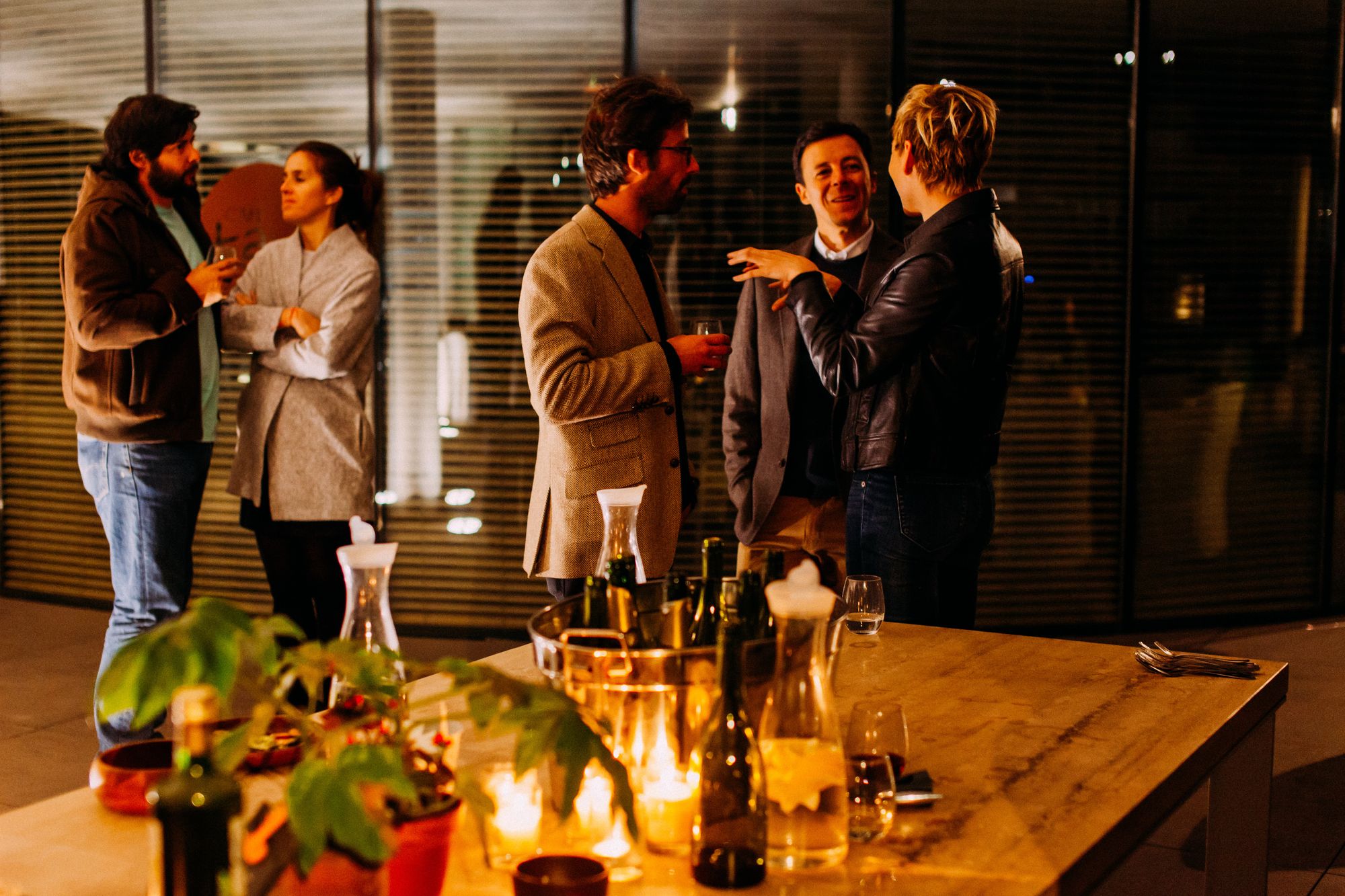Your Best Bet for Networking? Podcasting
As a podcast host, you have the opportunity to engage in a more meaningful and long-form dialogue with a guest.

Among many other seismic changes that happened since the start of 2020, a major disruption has been the absence of in-person gatherings. Sure, some areas have reduced restrictions to varying degrees. But overall, in-person connectivity is one of many casualties of our unexpected year.
Obviously platforms like Zoom and Slack have stepped up to help fill the void left by in-person offices and get togethers, with debatable results. But just because in-person conferences and happy hours aren’t happening right now, doesn’t mean that professional networking has to be neglected until large gatherings make a comeback. Podcasts are a great tool for more in-depth and meaningful connection.
Networking in the pre-pandemic world had its challenges. Yelling to make conversation at a crowded happy hour never really felt like an effective way to make connections, and conference engagements often dealt more in quantity than quality. Podcasts counter these scenarios by offering a better way to hold a conversation.
As a podcast host, you have the opportunity to engage in a more meaningful and long-form dialogue with a guest. Many podcasts clock in between twenty and forty minutes. In the age of smartphones and digital distractions, it’s rare to get that much time with one single person, where both parties are completely engaged in the conversation. Instead of competing for someone’s time at a conference or happy hour, you have their undivided attention. This offers another entrepreneurial advantage for podcasters.
To take this to the next level, consider bringing on two professionals from the same field on your podcast. (Two directors, two authors, etc.) Or, for more of a panel approach, consider three to four guests. (I’ve found more than four speakers risks a potentially disjointed conversation.) But panel podcasts have never been so achievable, given the ease of use of recording a virtual conversation with multiple speakers via Zoom. Or, for better audio quality, consider Squadcast or Zencastr.
In order to make sure your podcast is just as engaging for people to listen to as it is to record, you can prepare talking points, a brief outline, or questions beforehand to share with your guests–this way, your episode will help solidify new connections and be enjoyable for your current listeners.
As a podcast host, bringing one or more experts on your podcast unlocks insights for you and your listeners. It also can lead to repeat guests returning to your show at a later date, which adds value and credibility to your podcast. And bringing multiple speakers from the same industry together for one conversation makes your show essential listening. Episodes like these also help with pitches to future partners, sponsors, or other guests, as we’ve talked about before. (Link to first blog.)
Starting in the early 2010s, I began hosting live panel events featuring speakers from a variety of creative industries, including live festivals, music journalism, artist management, and more. These talks proved to be not only highly successful live events, but they also made great digital content in the form of podcasts and live streams. What’s more, they also offered valuable networking opportunities. Not just for myself as the event host and organizer, but also for the event attendees who were able to connect with talent from the worlds of music, film, fashion, and more. By presenting these events, I was able to develop professional relationships with many of the panelists, and also offer the chance for creatives in various stages of their careers the chance to engage in-person with these professionals, as well.
When booking guests for your podcast, consider the value for listeners, the value for the guest, and the networking opportunity for yourself and your show, as well. Podcasting offers a unique opportunity not available on every platform; the opportunity to develop a meaningful connection with one or more high value guests. As a host, it’s worth acting on these kinds of valuable opportunities.
Jaime Black has been podcasting since 2005, and has worked in the creative industries for over two decades. He is the host and founder of Dynasty Podcasts, the first ever and longest-running music podcast in Chicago’s history, and teaches a Podcasting 101 workshop. He also teaches in the Business & Entrepreneurship department Columbia College Chicago, in addition to developing his own creative industry courses at www.dynastyacademy.com.

